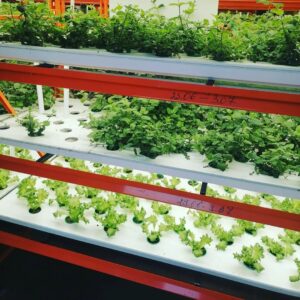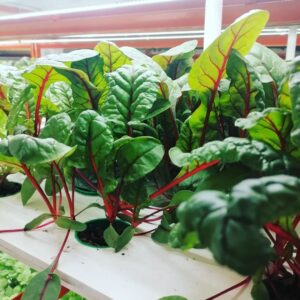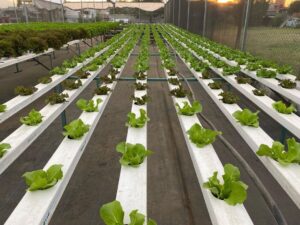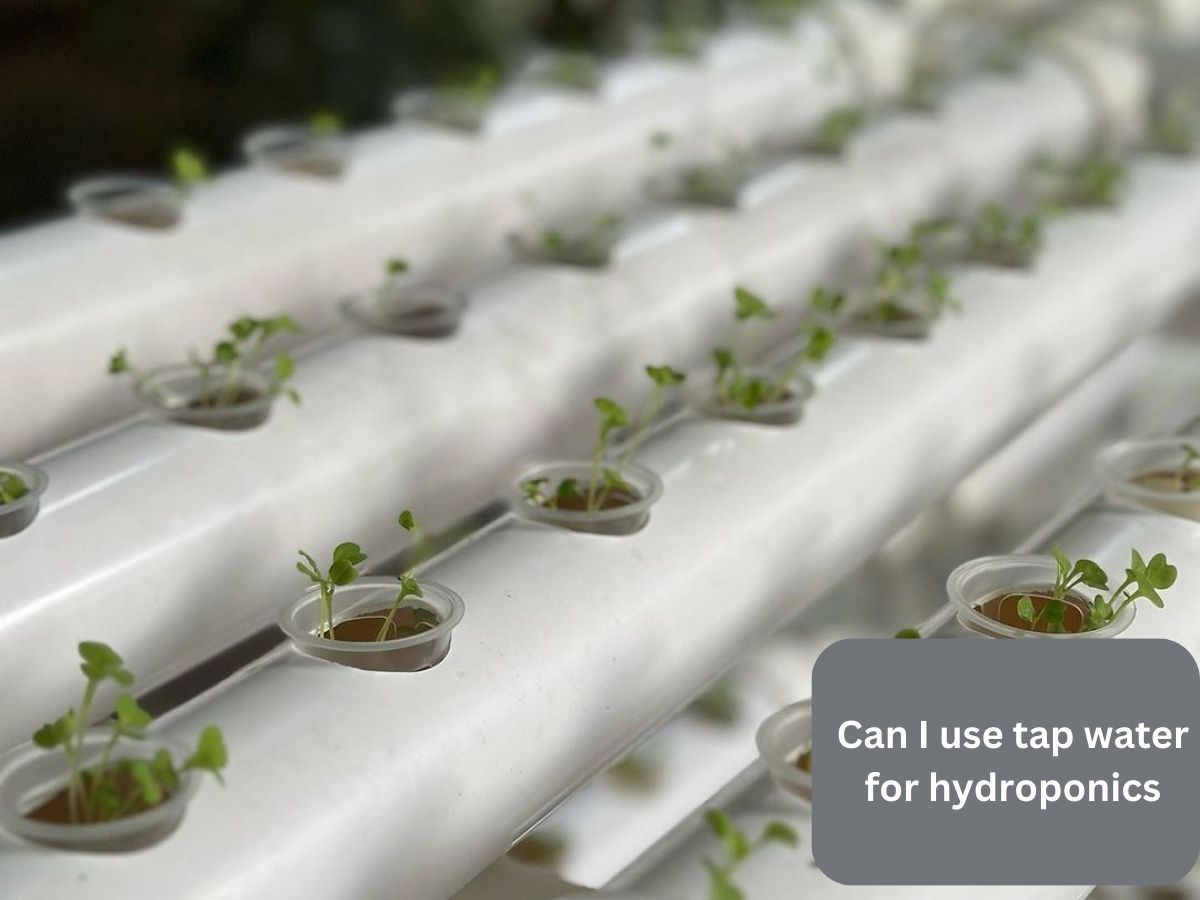Can I use tap water for hydroponics? It’s a question that often crosses the minds of many aspiring hydroponic gardeners, and today, we’re diving straight into it. If you’ve ever been intrigued by the idea of growing plants without soil, hydroponics is undoubtedly an exciting venture.
If you’re just starting with hydroponics, it’s natural to wonder whether your regular tap water can be a suitable substitute for expensive filtered or purified water. After all, hydroponics is all about efficiency and resourcefulness, right? Well, you’re not entirely wrong; Tap water can work for your hydroponic system, but there are some crucial factors to consider.
The composition of your tap water, including its pH levels, mineral content, and potential contaminants, can significantly impact your plants’ growth and overall success.
So, before you dive headfirst into your hydroponic journey with the water straight from your faucet, join us as we explore the do’s and don’ts of using tap water in your hydroponic setup. Get ready to unveil the secrets to flourishing greens and bountiful harvests as we debunk myths, share expert tips, and provide you with all the necessary know-how to take your hydroponics to the next level.
Can You Use Tap Water for Hydroponics?
Yes, you can use tap water for hydroponics, but there are several factors to consider before doing so. The quality of tap water can vary depending on your location and the source of your water supply.
For example, tap water can contain chlorine, fluoride, heavy metals, and other contaminants that can be harmful to plants. It can also have a high pH level, which can affect the uptake of nutrients by the plants. Here is how to start a hydroponic farm.
Before using tap water for hydroponics, it is important to test the water’s quality and pH level. You can use a water quality test kit or send a sample of your tap water to a laboratory for testing. Additionally, you should consider the type of plants you are growing and the nutrients they require. Some plants are more sensitive to water quality and pH levels than others and may require a specific water source or treatment to thrive.
Water Several factors should be considered before using tap water for hydroponics. These include the quality of the tap water, the pH level, and the type of plants being grown. It’s important to test the tap water to determine its quality and adjust its pH level if necessary. It’s also crucial to consider the nutrient requirements of the grown plants and ensure that the tap water contains the necessary nutrients. Other factors include;

- Quality of tap water: The quality of tap water can vary depending on your location. You may need to test your tap water to determine its quality.
- pH level: The pH level of tap water can affect the nutrient uptake of plants. You may need to adjust the pH level of tap water before using it in hydroponics.
- Type of plants: Some plants are more sensitive to tap water than others. Research the specific requirements of the plants you’re growing to determine if tap water is suitable.
- Nutrient requirements: Tap water may not contain all the necessary nutrients for optimal plant growth. You may need to supplement with additional nutrients.
Types of Tap Water
Tap water can come from different sources, and tap water quality can vary depending on the location. In general, tap water can be classified into three types:
- Hard Water: Hard water is water that contains high levels of minerals such as calcium and magnesium. While these minerals are beneficial for plant growth, they can also cause scaling and clogging in the hydroponic system.
- Soft Water: Soft water is water that has low mineral content. While soft water is less likely to cause scaling and clogging in the hydroponic system, it may not contain enough minerals for optimal plant growth.
- Chlorinated Water: Chlorinated water is water that has been treated with chlorine to kill bacteria and other microorganisms. While chlorine can be harmful to plants, it can be removed by allowing the water to sit for a few hours or by using a carbon filter.
Advantages and disadvantages of using tap water for hydroponics
There are several advantages and disadvantages to using tap water for hydroponics.
Advantages:
- Convenience: Tap water is readily available in most homes and is easy to access for hydroponic systems.
- Cost-effectiveness: Using tap water is usually less expensive than purchasing specialized water for hydroponics.
- Nutrient content: Tap water contains essential minerals that can benefit plants in hydroponic systems.
Disadvantages:
- Impurities: Tap water can contain impurities such as chlorine, fluoride, and heavy metals that can be harmful to plants.
- pH levels: Tap water can have high pH levels that can affect the absorption of nutrients by plants in hydroponic systems.
- Chemical additives: Some municipalities add chemicals such as fluoride and chloramine to tap water, which can be harmful to plants.
It is important to note that the quality of tap water can vary widely depending on your location and water source. Some areas may have better-quality tap water than others. Before using tap water in your hydroponic system, it is important to test the water’s quality and pH level to ensure that it is suitable for your plants.
Overall, while tap water can be a convenient and cost-effective option for hydroponics, it is important to consider the potential drawbacks and ensure that the quality of your tap water is suitable for your plants to prevent wilting.
Factors to consider when using tap water for hydroponics
When using tap water for hydroponics, there are several factors to consider to ensure the success of your plants.
- pH levels: pH is a measure of the acidity or alkalinity of water. The pH level of tap water can vary widely depending on the source of the water and the treatment it receives. In hydroponics, it is important to maintain a pH level between 5.5 and 6.5 to ensure optimal nutrient uptake by plants. If the pH level of your tap water is too high or too low, you may need to adjust it using pH-balancing products.
- Water hardness: Water hardness refers to the concentration of minerals, such as calcium and magnesium, in water. Hard water can affect the absorption of nutrients by plants in hydroponics. If your tap water is too hard, you may need to use a water-softening product or consider using a water source with lower mineral content.
- Chlorine: Chlorine is a chemical that is commonly used to disinfect tap water. However, it can be harmful to plants in hydroponics. Chlorine can kill beneficial bacteria in the water that are essential for plant growth. If your tap water contains chlorine, you may need to use a de-chlorinator to remove it before using the water in your hydroponic system.
- Other potential contaminants: Tap water can contain other contaminants that can be harmful to plants in hydroponics, such as heavy metals, pesticides, and pharmaceuticals. It is important to test your tap water for these contaminants and use a water treatment system if necessary.
Overall, when using tap water for hydroponics, it is important to test the quality of your water source and consider the specific needs of your plants. pH levels, water hardness, chlorine, and other potential contaminants can all impact the success of your hydroponic system. By properly managing these factors, you can ensure optimal growth and health for your plants.

Tips for using tap water in hydroponics
If you are using tap water for hydroponics, there are several tips you can follow to ensure optimal water quality for your plants.
- Test and adjust pH levels: As mentioned earlier, maintaining the correct pH level is crucial for optimal nutrient uptake by plants in hydroponics. You can test the pH level of your tap water using a pH testing kit and adjust it using pH-balancing products.
- Reduce water hardness: If your tap water is too hard, you can reduce the mineral content using a water softener or by diluting it with distilled water.
- Remove chlorine: Chlorine can be harmful to plants in hydroponics, so it is important to remove it from your tap water. You can use a de-chlorinator or let the water sit out for 24 hours before using it in your hydroponic system.
- Use a water treatment system: If your tap water contains other contaminants, such as heavy metals or pesticides, you may need to use a water treatment system to remove them.
- Consider alternative water sources: If your tap water quality is not suitable for hydroponics, you may need to consider alternative water sources such as rainwater, well water, or purified water.
- Monitor water quality regularly: It is important to regularly test the quality of your tap water and monitor its pH level and mineral content. This will help you make necessary adjustments and ensure optimal growth for your plants.
By following these tips, you can ensure that your tap water is suitable for hydroponics and provide the best possible environment for your plants to thrive.
Alternatives to tap water for hydroponics
While tap water is a convenient and cost-effective source of water for hydroponic systems, it may not always be the best option. Fortunately, there are several alternative sources of water that can be used in hydroponics. Here are a few examples:
- Rainwater: Rainwater is a natural source of water that can be used in hydroponics. It is free of minerals and chemicals and is often high in oxygen, which can be beneficial for plant growth. However, it can also be contaminated with pollutants, so it is important to collect and filter it properly.
- Reverse osmosis water: Reverse osmosis is a water filtration process that removes impurities and minerals from water. Reverse osmosis water is often used in hydroponics, as it is free of minerals and contaminants that can affect plant growth.
- Purified water: Purified water is another option for hydroponics, as it is free of minerals and contaminants. However, it can be expensive and may not be practical for larger hydroponic systems.
- Bottled water: Bottled water can be used in hydroponics, but it can be expensive and is not a sustainable option for larger hydroponic systems.
Ultimately, the best source of water for your hydroponic system will depend on your specific needs and circumstances. It is important to test and monitor the quality of your water regularly to ensure optimal plant growth.
Benefits and drawbacks of using alternative water sources
Using alternative water sources for hydroponics can have both benefits and drawbacks. Here are a few to consider:
Benefits:
- Chemical-free water: Alternative water sources, such as well water, rainwater, and reverse osmosis water, are often free of the chemicals found in tap water, such as chlorine and fluorine. This can be beneficial for plant growth as these chemicals can affect nutrient uptake and can harm the plant’s root system.
- Reduced mineral content: Some alternative water sources, such as reverse osmosis and purified water, have reduced mineral content. This can be beneficial in preventing nutrient lockout or buildup, which can affect plant growth.
- Sustainable: Using alternative water sources can be a more sustainable option for hydroponics, especially if you collect and filter rainwater or use well water.
Drawbacks:
- Contamination risk: Alternative water sources can be more prone to contamination, especially if they are not properly collected, filtered, or treated. This can lead to plant damage or disease, which can affect the overall yield.
- Higher cost: Some alternative water sources, such as purified or bottled water, can be more expensive than tap water. This can be a concern for larger hydroponic systems, as the cost of water can add up over time.
- Water quality variability: Alternative water sources can have varying water quality depending on the source and treatment method. This can lead to inconsistencies in plant growth and yield.
Ultimately, the benefits and drawbacks of using alternative water sources for hydroponics will depend on your specific needs and circumstances. It is important to weigh these factors when choosing a water source for your hydroponic system.

Can I use tap water for hydroponics FAQs?
How can I remove chlorine from tap water for hydroponics?
Chlorine is commonly added to tap water as a disinfectant, but it can harm beneficial microbes and plant roots in a hydroponic system. To remove chlorine from tap water for hydroponics, you have a few options:
- Letting it sit: Simply leaving the water exposed to air for 24 to 48 hours will allow chlorine to naturally evaporate. However, this method may not eliminate chloramine, a more stable chlorine compound.
- Activated carbon filters: Utilizing activated carbon filters, either attached to your faucet or in-line with your hydroponic system, can effectively remove chlorine and chloramine from the water.
- Water conditioners: Some water conditioners are specifically designed to neutralize chlorine and chloramine, making tap water safe for hydroponic use. Follow the product instructions for proper dosage.
Is RO water better than tap water for hydroponics?
Reverse osmosis (RO) water has some advantages over tap water for hydroponics, but it also has potential drawbacks. RO water is purified, removing most impurities, including chlorine, chloramine, heavy metals, and minerals. This makes it a reliable option for hydroponic systems, as it allows for precise control over nutrient solutions.
However, RO water lacks essential minerals that plants need for healthy growth. To address this, you will need to add a well-balanced hydroponic nutrient solution. Additionally, using RO water exclusively may lead to a slightly acidic pH level, which requires consistent monitoring and adjustment.
In summary, RO water can be a good choice for hydroponics due to its purity and controllability, but it requires careful nutrient management to provide the necessary minerals for plant growth.
Can I use bottled water for hydroponics?
Using bottled water for hydroponics is possible, but it may not be the most practical or cost-effective option, especially for large-scale systems. Bottled water generally lacks essential nutrients required for optimal plant growth, and the expense can quickly add up.
If you choose to use bottled water, consider those labeled as “spring water” or “mineral water,” as they may contain some beneficial minerals. However, it’s still crucial to monitor and adjust the nutrient solution to ensure plants receive all the necessary elements.
Overall, while using bottled water is an option, it’s generally better suited for small-scale hydroponic setups or occasional use, rather than a primary water source.
Can I use well water for hydroponics?
Using well water for hydroponics is possible, but it requires careful consideration and testing. The quality of well water can vary significantly depending on the location, geological composition, and other factors.
Before using well water, conduct a comprehensive water analysis to determine its pH, mineral content, and potential contaminants. High mineral levels or excessive alkalinity in well water can lead to nutrient imbalances and hinder plant growth.
If the well water quality meets the requirements for hydroponics, adjustments can be made to pH and nutrient levels as needed. In some cases, you might need to dilute well water with filtered or RO water to achieve the ideal nutrient balance.
Always monitor your plants closely when using well water, and be prepared to make adjustments to ensure successful hydroponic cultivation.
Conclusion
Using tap water for hydroponics can be a convenient and cost-effective option, but it is important to consider the potential drawbacks, such as impurities and chemical additives. Before using tap water, it is essential to test and adjust pH levels, reduce water hardness, and remove chlorine to ensure optimal plant growth.
Additionally, using alternative water sources, such as well water or reverse osmosis water, can provide benefits like chemical-free water and reduced mineral content, but they also have drawbacks such as contamination risk and higher cost.
Regardless of the water source chosen, it is crucial to monitor water quality regularly and make adjustments as necessary. Ensuring that the water used in a hydroponic system is of high quality is critical for the success of the plants grown and the overall yield of the system.
In summary, tap water can be used for hydroponics, but it is essential to take into account water quality and potential contaminants. With proper care and attention, using tap water can be a suitable option for hydroponic gardening.
